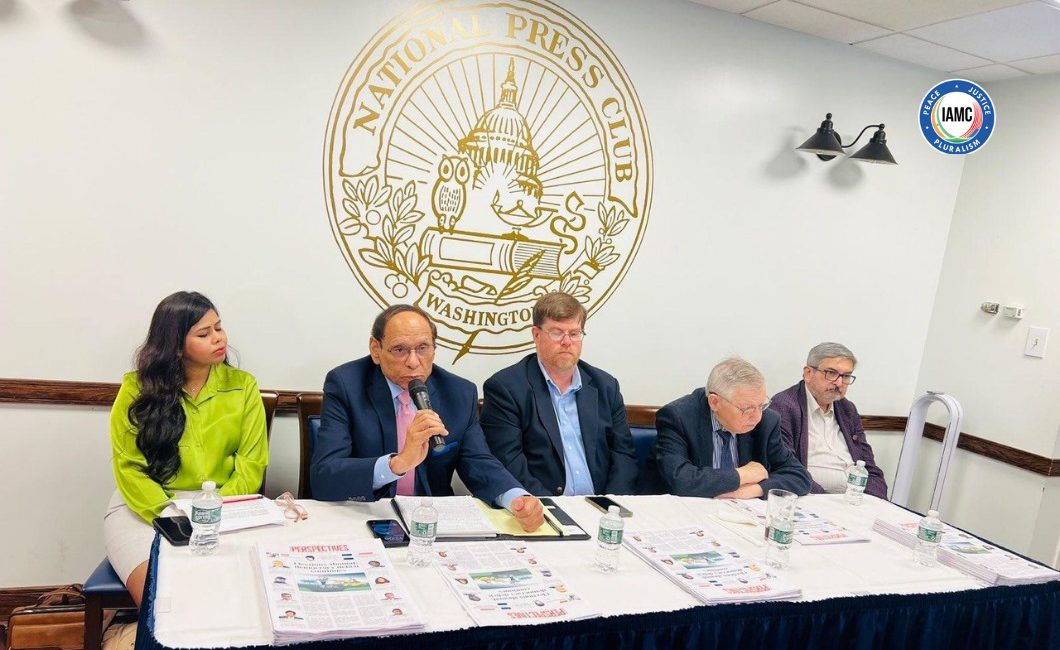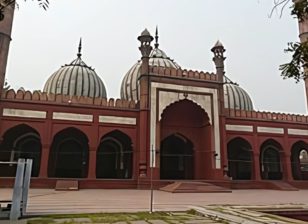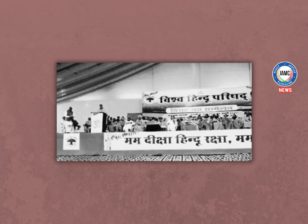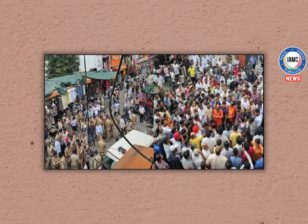India’s authoritarian turn raises serious questions at home and abroad: Experts at Panel Discussion on India
Washington, D.C. (June 2, 2024) – Experts at a panel discussion held in D.C on Friday highlighted domestic and global challenges as India’s voters go to the poll amidst rising concerns about economic inequality and a declining human rights environment. Along with providing background to these developments, the experts underscored the time that would be needed to reverse these trends. For the U.S., it will remain important to focus on human rights despite growing trade ties between the two countries as well as imperative to counterbalance China in the Indo-Pacific.
On May 31, South Asia Perspectives (SAP) organized a panel discussion at the National Press Club timed with the publication of its June-August quarterly edition which focused on elections in South Asia. Given the centrality of India’s ongoing election, the event was titled “Navigating Crossroads: India’s economy, democracy and quest for human rights”.
Speakers at the event included SAP Editor Ambassador (ret`d) William B. Milam, Ambassador Islam Siddiqui, former US Chief Agricultural Negotiator, author Salil Tripathi, and human rights activist Sarita Pandey. Attendees included representatives from the Tom Lantos Human Rights Commission, Freedom House, US State Department, Hindus for Human Rights, and Indian American Muslim Council. Former diplomats, the World Bank analysts, journalists from Associated Press (AP), BBC and Voice of America also attended the event.
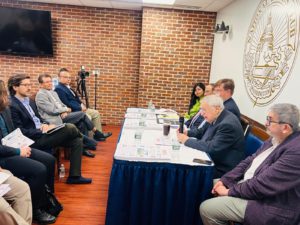
In his remarks, William B. Milam observed that, “Elections have consequences. What kind of consequences those in India will have is important to notice. India is moving slowly but surely in an authoritarian direction, which is a serious question for the United States, which is considering India as one of its main partners.”
He suggested analysts should pay special attention to the propaganda war being led by authoritarian governments. In his view, the anti-democratic propaganda war has been extremely effective. “Propaganda campaigns help lead to establish authoritarianism. And it takes over 20-30 years to happen”, Milam observed. He also expressed deep concerns about the anti-democratic trends in the United States and the rest of the world.
Author Salil Tripathi spoke about India’s economic development, highlighting truths that lay behind official data. “When people are talking high about India because of fancy malls, airports and breezes. I am worried because when the recession happened during the Asian economic crisis, likewise fancy structures became ghostly empty. In that context religious politics become dangerous. Because at that time when you can’t handle and grapple the real complex issues. The victims in such a scenario become the enemies of the state.”
Salil expressed sorrow that 80% percent of India’s unemployed are from the youth population, observing that even masters and PhD graduates are forced to apply for menial jobs due to the lack of job growth.
Referring to crony capitalism in India, Salil said, “If you are a foreign investor in India and Ambani or the Adanis are your competitors, either you will have to sell the business or make some agreements with them.”
Referring to economic inequalities and discriminations, Salil said that some Gujrati Muslims with whom he has spoken have stopped asking for justice. “They don’t expect justice. They just want to scale up in a professional capacity like doctors, engineers and accountants so that they can work for themselves. They fear no one would hire them and when their names are showed up in resume, they won’t get a call to be hired”, Salil added.
In the absence of genuine economic growths, Salil observed, the majority and powerful population within the state start to feel persecuted. “The victims of such feelings, the minorities, turn into enemy of the state”, Salil said.
Ambassador Islam Siddiqui reviewed the expanding US-India trade relationship, looking both at the past and exploring current developments. Emphasizing India’s constitution Ambassador Siddiqui said, “India’s democracy has been rough and noisy sometimes yet the elected leadership has always paid allegiance to the constitution and secularism of India. This has helped thrive Indian democracy”.
Siddiqui observed that Prime Minister Narendra Modi has used religious divisions as a political tool to energize his support base. “Mr. Modi didn’t respond to the crisis in Manipur where 65 thousand Christians had been displaced and more than 250 churches were burnt down. The Prime Minister acknowledged the crisis after six months, following his trip back from the United States”.
“The Biden administration is aware such things. However, for geopolitical reasons, to counterbalance China, the US is essentially ignoring gross human rights violations for the time being”, he added.
Journalist and rights activist Sarita Pandey provided a detailed account of the lack of press freedom in India and its implication for broader human rights. “Over the last ten years mainstream news has refused to provide any substantive coverage to the various scams, cons, illegalities and crimes of the Modi Administration, or of its various ministers and leaders, several of who have faced allegations of rape, assault and murder. Two months ago, it was revealed that Mr. Modi’s party had received a billion dollars at least in secret financial contributions. The news media worked overtime to protect Mr. Modi’s reputation rather than question him”, Sarita said.
On how the state apparatus are used to control media, Sarita focused on the Tehelka exposure related to the Gujrat genocide. “Mr. Modi’s close lieutenant in Gujarat and now India’s home minister – Mr. Shah was arrested, and his trial was on track. But after Mr. Modi became prime minister the judge was summarily transferred. The next judge refused to dismiss the case and ended up dead within a week. The third judge abruptly discharged Mr. Shah from the case, claiming, without explanation, the accused was wrongfully implicated for political reasons.”
Drawing on detailed references from Reporters Without Borders’ Committee to Protect Journalists, Sarita claimed that India has become one of the most dangerous countries for journalists.
South Asia Perspectives Editor-at-Large Jon Danilowicz moderated the panel discussion while Executive Editor Mushfiqul Fazal Ansarey welcomed the guests. The latest edition of the quarterly journal can be found at www.saperspectives.net.

